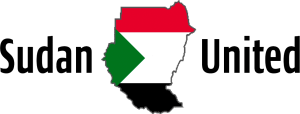
Bringing the Nation back to Life
More than 2 results are available in the PRO version (This notice is only visible to admin users)
The Timeline
1881A chronology of Key Events
Revolt against the Ottoman-Egyptian administration.
1899 – 1995A chronology of Key Events
Sudan passes into joint British-Egyptian rule.
1956A chronology of Key Events
Sudan becomes independent.
1983A chronology of Key Events
Civil war breaks out again in the south involving government forces and the Sudan People’s Liberation Movement (SPLM), led by John Garang.
1985Islamic law imposed
After widespread popular unrest Mr Numeiri is deposed by a Transitional Military Council.
1986Islamic law imposed
A coalition government was formed after the elections, with Sadiq al-Mahdi as prime minister.
1989Islamic law imposed
National Salvation Revolution takes over in a military coup.
1993Islamic law imposed
General Omar al-Bashir is appointed president.
1995US Strike
Egyptian President Mubarak accuses Sudan of being involved in an attempt to assassinate him in Addis Ababa.
1998US Strike
The US launches missile attack on a pharmaceutical plant in Khartoum, alleging that it was making materials for chemical weapons.
1999US Strike
President Bashir dissolves the National Assembly and declares a state of emergency following a power struggle with parliamentary speaker, Hassan al-Turabi.
1999US Strike
Sudan begins to export oil.
2002Southern peace, Darfur crisis
Machakos Protocol talks in Kenya lead to a breakthrough agreement with southern rebels on ending the civil war. Provide for the south to seek self-determination after six years.
2004Southern peace, Darfur crisis
January – Army moves to quell rebel uprising in the western region of Darfur; hundreds of thousands of refugees flee to neighbouring Chad.
Pro-government Arab Janjaweed militias carry out systematic killings of non-Arab villagers in Darfur.
2005Southern peace, Darfur crisis
June – Government and exiled opposition grouping – National Democratic Alliance (NDA) – sign reconciliation deal allowing NDA into power-sharing administration.
President Bashir frees Islamist leader Hassan al-Turabi.
2008Southern peace, Darfur crisis
May – Tension increases between Sudan and Chad after Darfur rebel group mounts raid on Omdurman, Khartoum’s twin city across the Nile. Sudan accuses Chad of involvement and breaks off diplomatic relations.
2009Bashir arrest warrant
March – The International Criminal Court in The Hague issues an arrest warrant for President Bashir on charges of war crimes and crimes against humanity in Darfur.
2009Bashir arrest warrant
December – Leaders of North and South reach deal on terms of referendum on independence due in South by 2011.
2010Darfur deal
Feb-March – The Justice and Equality Movement (Jem) main Darfur rebel movement signs a peace accord with the government, prompting President Bashir to declare the Darfur war over. But failure to agree specifics and continuing clashes with smaller rebel groups endanger the deal.
2010Darfur deal
April – President Bashir gains new term in first contested presidential polls since 1986.
2010Darfur deal
July – International Criminal Court issues second arrest warrant for President al-Bashir – this time on charges of genocide.
2010Darfur deal
August – Mr Bashir tests ICC arrest warrant by visiting Kenya, an ICC signatory. The Kenyan government refuses to enforce the warrant. He later ignores South African court order not to leave country in 2015.
2011South becomes independent
July – South Sudan gains independence after January popular vote, but some border areas remain in dispute.
2012South becomes independent
May – Sudan pledges to pull its troops out of the border region of Abyei, which is also claimed by South Sudan, as bilateral peace talks resume.
2012South becomes independent
June – Protests in Khartoum against austerity measures after government cuts fuel and other subsidies in response to the drop in oil revenue after the independence of South Sudan.
2013South becomes independent
March – Sudan and South Sudan agree to resume pumping oil, ending a shutdown caused by a dispute over fees more than a year earlier, and to withdraw troops from their borders to create a demilitarised zone.
2013Ruling party splits
October – Dissident members of ruling National Congress Party threaten split to reach out to secularists and leftists.
2014Ruling party splits
December – The chief prosecutor of the International Criminal Court halts investigations into war crimes in Darfur for lack of support from the UN Security Council.
2016Ruling party splits
November-December – Street and stay-at-home protests at IMF-prompted price hikes for basic goods. Government disperses protests, arrests opposition politicians, bans media coverage.
2018Ruling party splits
January – Protests against bread price rises after government removed subsidies. These escalate into mass protests in December.
2019Fall of Bashir
February – President Bashir declares state of emergency and sacks cabinet and regional governors in bid to end weeks of protests against his rule, in which up to 40 people died.
2019Fall of Bashir
April – Military topples President Bashir in a coup, begins talks with opposition on transition to democracy.
2019Fall of Bashir
September – A new government takes office under Prime Minister Abdalla Hamdok as part of a three-year power-sharing agreement between the military, civilian representatives and protest groups.
